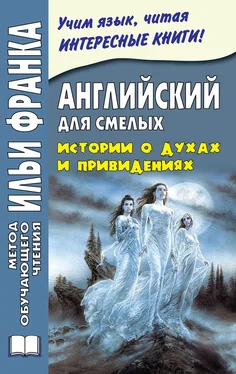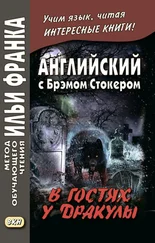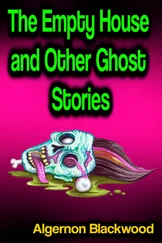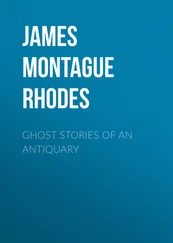Linkworth went to pay the penalty for the atrocious deed(Линкворт отправился расплачиваться за /свое/ зверское/ужасное злодеяние; to pay – платить; penalty – наказание; взыскание; штраф; to pay a penalty – расплачиваться; deed – действие, деяние ) , which no one who had heard the evidence could possibly doubt that he had done with the same indifference(которое, как не мог усомниться никто из тех, кто слышал свидетельские показания, он совершил с тем же равнодушием; evidence – ясность, наглядность, очевидность; / юр. / свидетельское показание ) as had marked his entire demeanour since he knew his appeal had failed(что отмечало все его поведение, с тех пор как он узнал, что его прошение о помиловании отвергнуто; to fail – зд.: потерпеть неудачу; не иметь успеха ) . The prison chaplain who had attended him had done his utmost to get him to confess(тюремный священник, который посещал его, сделал все от него зависящее, чтобы вынудить его признать свою вину; utmost – / сущ. / самое большое, всe возможное; to confess – признавать / ся / ; сознаваться; исповедоваться ) , but his efforts had been quite ineffectual(но его старания оказались совершенно безрезультатными) , and to the last he asserted, though without protestation, his innocence(и он ему: «последнему» заявил о своей невиновности, хотя и не пытался протестовать) . On a bright September morning(ясным сентябрьским утром) , when the sun shone warm on the terrible little procession(когда солнце согревало своими теплыми лучами ужасную маленькую процессию; to shine – светить, сиять, озарять; warm – теплый ) that crossed the prison yard to the shed where was erected the apparatus of death(что пересекла тюремный двор /по направлению/ к сараю, где воздвигли аппарат смерти) , justice was done(свершилось правосудие) , and Dr Teesdale was satisfied that life was immediately extinct(и доктор Тисдейл удостоверился, что смерть была мгновенной: «что жизнь была немедленно угасшей»; to satisfy – удовлетворять; убеждать; доказывать ) . He had been present on the scaffold(он присутствовал на эшафоте) , had watched the bolt drawn(видел, как извлекли фиксатор; bolt – засов, задвижка; to draw – тянуть ) , and the hooded and pinioned figure drop into the pit(и фигура в капюшоне и со связанными руками обрушилась вниз; to pinion – связывать / руки / ; to drop – капать; падать; валиться; pit – яма, углубление ) . He had heard the chunk and creak of the rope as the sudden weight came on to it(он услышал, как веревка всхлипнула и скрипнула под внезапным весом; chunk – лязганье, урчание, глухой всхлипывающий звук; to come on – наступать, надвигаться, обрушиваться ) , and looking down he had seen the queer twitchings of the hanged body(и, посмотрев вниз, увидел странные конвульсии повешенного; to twitch – дергаться, конвульсивно сокращаться; body – тело ) . They had lasted but a second or two(длились они всего секунду—другую) ; the execution had been perfectly satisfactory(казнь прошла абсолютно безупречно; perfectly – совершенно, в полной мере; satisfactory – удовлетворительный ).

 Linkworth went to pay the penalty for the atrocious deed, which no one who had heard the evidence could possibly doubt that he had done with the same indifference as had marked his entire demeanour since he knew his appeal had failed. The prison chaplain who had attended him had done his utmost to get him to confess, but his efforts had been quite ineffectual, and to the last he asserted, though without protestation, his innocence. On a bright September morning, when the sun shone warm on the terrible little procession that crossed the prison yard to the shed where was erected the apparatus of death, justice was done, and Dr Teesdale was satisfied that life was immediately extinct. He had been present on the scaffold, had watched the bolt drawn, and the hooded and pinioned figure drop into the pit. He had heard the chunk and creak of the rope as the sudden weight came on to it, and looking down he had seen the queer twitchings of the hanged body. They had lasted but a second or two; the execution had been perfectly satisfactory.
Linkworth went to pay the penalty for the atrocious deed, which no one who had heard the evidence could possibly doubt that he had done with the same indifference as had marked his entire demeanour since he knew his appeal had failed. The prison chaplain who had attended him had done his utmost to get him to confess, but his efforts had been quite ineffectual, and to the last he asserted, though without protestation, his innocence. On a bright September morning, when the sun shone warm on the terrible little procession that crossed the prison yard to the shed where was erected the apparatus of death, justice was done, and Dr Teesdale was satisfied that life was immediately extinct. He had been present on the scaffold, had watched the bolt drawn, and the hooded and pinioned figure drop into the pit. He had heard the chunk and creak of the rope as the sudden weight came on to it, and looking down he had seen the queer twitchings of the hanged body. They had lasted but a second or two; the execution had been perfectly satisfactory.
An hour later he made the post-mortem examination, and found that his view had been correct(часом позже он сделал вскрытие трупа и подтвердил правильность своей оценки: «и обнаружил, что его точка зрения была правильной»; post-mortem – посмертный /лат. «после смерти»/; examination – осмотр, обследование; post-mortem examination – вскрытие трупа ) : the vertebrae of the spine had been broken at the neck(были сломаны шейные позвонки; vertebra – позвонок; spine – спинной хребет; позвоночник; neck – шея ) , and death must have been absolutely instantaneous(и смерть, должно быть, наступила совершенно мгновенно) . It was hardly necessary even to make that little piece of dissection that proved this(едва ли даже было необходимо производить это небольшое вскрытие, чтобы это подтвердить; piece – кусок; некоторое количество, небольшая порция ) , but for the sake of form he did so(но ради формы он это сделал) . And at that moment he had a very curious and vivid mental impression(и в тот момент он получил весьма любопытное и /до крайности/ живое впечатление; mental – умственный ) that the spirit of the dead man was close beside him(что дух покойного: «мертвого» человека находился рядом с ним) , as if it still dwelt in the broken habitation of its body(как если бы он по-прежнему обитал в своей разрушенной оболочке; habitation – обиталище, обитель; body – тело ) . But there was no question at all that the body was dead(но не было ни /малейшего/ сомнения, что тело было мертво; there was no question – сомнений не было; question – вопрос; проблема, дело ) : it had been dead an hour(с момента смерти прошел уже час: «оно было мертво час») . Then followed another little circumstance that at the first seemed insignificant though curious also(затем случилось другое небольшое происшествие: «последовало другое маленькое обстоятельство», которое сначала казалось незначительным, хотя и столь же любопытным) . One of the warders entered(вошел один из тюремщиков) , and asked if the rope which had been used an hour ago, and was the hangman’s perquisite, had by mistake been brought into the mortuary with the body(и спросил, не принесли ли по ошибке в морг вместе с телом ту веревку, что была использована час назад и считалась собственностью палача; perquisite – привилегия, прерогатива, что-то, считающееся находящимся в чьем-либо преимущественном праве ) . But there was no trace of it, and it seemed to have vanished altogether(но она исчезла без следа: «не было ни следа ее», казалось, она совсем исчезла) , though it was a singular thing to be lost(хотя казалось странным, что ее можно было потерять: «это была странная вещь, чтобы быить потерянной»; singular – необычный, своеобразный, странный ) : it was not here; it was not on the scaffold(ее не было в морге; не было ее и на эшафоте) . And though the disappearance was of no particular moment it was quite inexplicable(и хотя ее исчезновение не имело какого-либо особенного значения, это было совершенно необъяснимо; moment – зд.: важность, значение, значимость ).
Читать дальше
Конец ознакомительного отрывка
Купить книгу


 Linkworth went to pay the penalty for the atrocious deed, which no one who had heard the evidence could possibly doubt that he had done with the same indifference as had marked his entire demeanour since he knew his appeal had failed. The prison chaplain who had attended him had done his utmost to get him to confess, but his efforts had been quite ineffectual, and to the last he asserted, though without protestation, his innocence. On a bright September morning, when the sun shone warm on the terrible little procession that crossed the prison yard to the shed where was erected the apparatus of death, justice was done, and Dr Teesdale was satisfied that life was immediately extinct. He had been present on the scaffold, had watched the bolt drawn, and the hooded and pinioned figure drop into the pit. He had heard the chunk and creak of the rope as the sudden weight came on to it, and looking down he had seen the queer twitchings of the hanged body. They had lasted but a second or two; the execution had been perfectly satisfactory.
Linkworth went to pay the penalty for the atrocious deed, which no one who had heard the evidence could possibly doubt that he had done with the same indifference as had marked his entire demeanour since he knew his appeal had failed. The prison chaplain who had attended him had done his utmost to get him to confess, but his efforts had been quite ineffectual, and to the last he asserted, though without protestation, his innocence. On a bright September morning, when the sun shone warm on the terrible little procession that crossed the prison yard to the shed where was erected the apparatus of death, justice was done, and Dr Teesdale was satisfied that life was immediately extinct. He had been present on the scaffold, had watched the bolt drawn, and the hooded and pinioned figure drop into the pit. He had heard the chunk and creak of the rope as the sudden weight came on to it, and looking down he had seen the queer twitchings of the hanged body. They had lasted but a second or two; the execution had been perfectly satisfactory.









